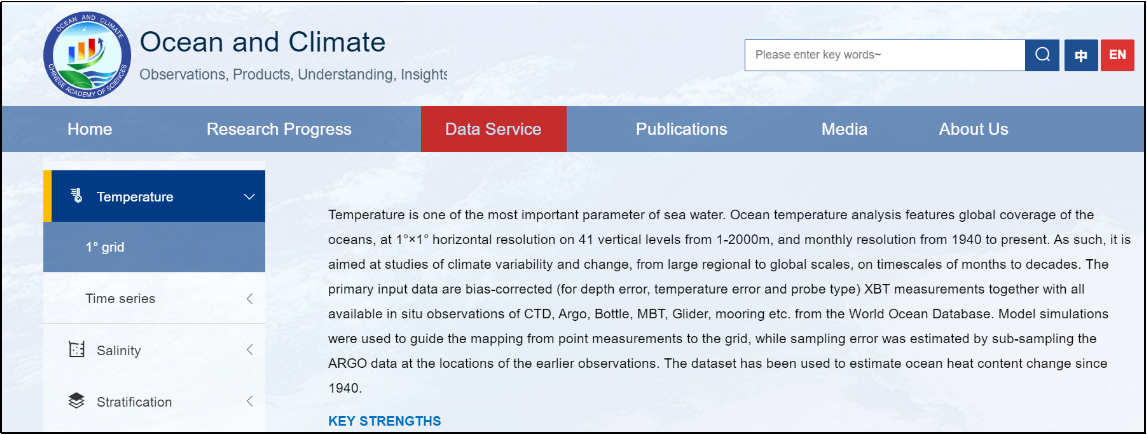Cheng Lijing, associate researcher of the center, developed the grid observation data (IAP data set) of the most important marine physical variables such as global ocean temperature, salinity and stratification. One belt, one road map, is a key basis for the study of climate change, climate monitoring, physical oceanography, climate policy, and socio-economic impact assessment.
The original data of this data set is all field observation data from the global ocean database (wod), including XBT, CTD, Argo, bolt, MBT, glider, mooring and other observation instruments. IAP data applies the XBT data deviation correction scheme (ch14 scheme) proposed by the atmosphere to correct the deviation of historical XBT data. At the same time, the interpolation method proposed by the atmosphere (mapping: improved set optimal interpolation) is used to interpolate the data. This method uses cmip5 multi-mode historical simulation to provide dynamic set samples to provide better background error covariance. In addition, IAP grid data use recent abundant marine observations to evaluate the accuracy of reconstruction in different basins and different time scales. Systematic analysis and evaluation show that the data set can accurately reproduce the climate average state, interdecadal change (such as PDO) and long-term trend since 1960.
